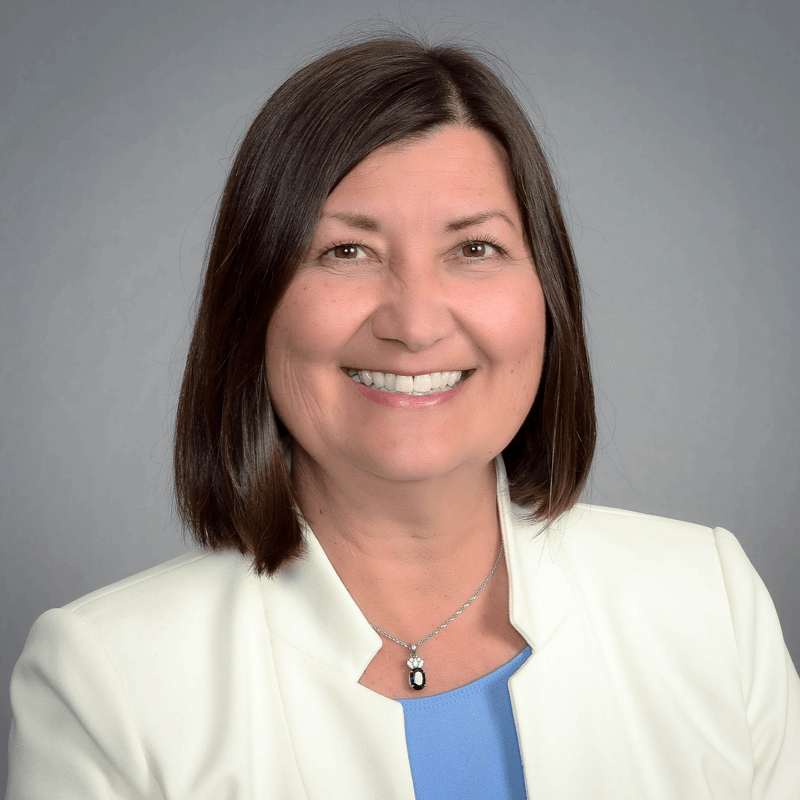
By Exporting, the Female-Owned GlobalCare Clinical Trials Saves Lives Worldwide
What if there was a clinical trial that could save your life, but traveling to the clinic for the procedure is out of the question because leaving home could compromise your health?
This is the kind of scenario that drove Gail Adinamis to found GlobalCare Clinical Trials.
Established in 2010, GlobalCare Clinical Trials, a sponsor of Women Entrepreneurs Grow Global™, brings Phase I-IV clinical trials to patients, instead of the other way around. Today, the company’s in-home and alternate-site nursing services can be found in more than 60 countries.
“I’ve always been one to break tradition and look for more efficient ways to do things,” Adinamis says. “It made much more sense to conduct a clinical trial visit—a blood draw or a drug administration, for example—in the patient’s home and at a time that’s convenient rather than having sick patients go to a physician’s office or a hospital or clinic.”
Time is money, and Adinamis says this is particularly true when it comes to clinical trials. “It takes ten to fifteen years and more than $2 billion to get a new product to market. That’s mostly because participation in clinical trials has been very challenging. Patients need to travel to physicians’ offices for their study tests, and this can be difficult for individuals who are critically ill or are in school or work. By making clinical trials convenient and comfortable, more people are willing and able to participate. Ultimately, that can reduce the development time it takes to get a new product to the market.”
And with the number of clinical studies rising each year—Adinamis notes that 276,190 studies are currently underway worldwide—the quicker new medicines and technologies can get to market, the sooner they can help people.
Like many women entrepreneurs, owning her own business was not Adinamis’ initial pursuit. A pre-med student at Carroll College (now Carroll University) in Waukesha, Wisconsin, she graduated with a bachelor’s degree in biology and chemistry. Rather than attend medical school, she went into the field of medical technology. Her first job was at Abbott Laboratories, where she entered the world of clinical trials. “I’ve been involved in clinical trials for the last forty years,” she says.
For GlobalCare Clinical Trials, international expansion was paramount almost from the start. “The majority of clinical studies are no longer being conducted in the U.S.,” Adinamis explains. “They are being conducted in Europe and in other regions. If I wanted to provide a global service, I had to expand outside the U.S.”
Today, the company employs approximately 100 people, and contracts with more than 75 country coordinators in 60 countries. It additionally contracts with tens of thousands more to conduct approximately 2,000 home visits per month.
The company’s goal is to standardize its services worldwide but, Adinamis adds, “You have to make adjustments for local regulations and cultural nuances to be successful.”
That means doing your homework. It’s Adinamis’ number one rule when it comes to exporting.
“Before expanding services into a country, I do a SWOT analysis of the political, educational, and commercial infrastructure. I look at the legal system, the market, the economy, currency control. Then I do a clinical trial analysis. How many trials are done there? How many sponsors are conducting studies there? What is the profile of the nursing profession? How many nurses are there? What are the standards of nursing care? They vary from country to country.”
While the homework must include an examination of the legal and regulatory landscapes, she underscores that “you also have to understand and respect the culture within the country. If you’re transparent in your communications, you’ll build trust. Trust is needed to build successful networks.”
GlobalCare’s first overseas expansion was into Western and Eastern Europe, where the regulations are relatively easier to navigate and there are fewer barriers to entry. Other countries and regions, such as China and Latin America, are admittedly more difficult.
“China is a very challenging country to conduct business,” Adinamis says. “They have many regulations, most of which I don’t understand, but I had a sponsor that convinced me to move into the area. Since China requires that you have a relationship with an established company in the country to do business, I partnered with a company in China that was providing IT services to healthcare systems there. Since they have the established business and connections, we invested in them to bring our in-home nursing services to China.”
Latin America also poses challenges, she adds, mostly in getting materials through customs. “You have to understand what the requirements are, and even then, you can run into some challenges!”
But for GlobalCare, most of the complexities in going international are because clinical trial regulations differ slightly from country to country. “In some cases,” Adinamis says, “the regulations are not very clear, especially as they relate to our service, because it is innovative.”
For companies like GlobalCare that conduct in-home health visits, privacy is a major issue. The General Data Protection Regulation (GDPR), a European Union regulation on data protection and privacy for all individual citizens of the European Union and the European Economic Area, has been one such hurdle. In this case, having country coordinators familiar with GDPR, and with local customs and rules, helped GlobalCare comply with the regulation.
Adinamis says that while there are some countries she has no plans to expand into, either because there is no request for the service or for political reasons, GlobalCare Clinical Trials will nevertheless continue to look outside the U.S. for new business.
“Expanding globally will continue to be important for us,” she states. “Right now, the volume of our business is about 50/50 between North America and other countries. But I see global services continuing to grow.”
Regardless of where in the world GlobalCare can be found, grateful patients talk about their ability to maintain a good quality of life while participating in a clinical study. Physicians appreciate how the service helps recruit and retain study participants from a broader geographic reach.
“It’s a win-win for all stakeholders,” Adinamis asserts, “from the patients to the physicians conducting the trials, to the sponsors who are funding them, and, ultimately, to the customers who will have products available to them faster. For some patients, this is their only hope for a cure.”
She offers an example. “We have a baby in Israel that was born with a rare genetic disorder. Normally, the baby wouldn’t live beyond the age of two. But with the supplemental investigational drug, the baby is now three years old and thriving.”
For more information, visit www.globalcarect.com.




